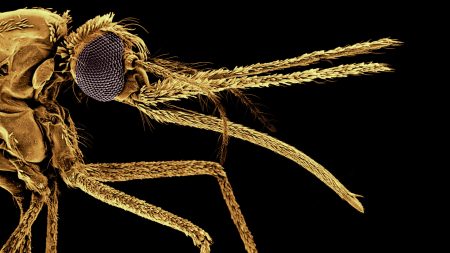Meghan Rosen, a staff writer specializing in life sciences for Science News, possesses a strong academic background that fuels her insightful reporting. Her journey began with a deep dive into the intricate world of biochemistry and molecular biology, culminating in a Ph.D. from the prestigious University of California, Davis. Her doctoral studies, with a specific emphasis on biotechnology, provided her with a robust foundation in the scientific principles governing life processes, as well as the cutting-edge technologies used to manipulate and understand them. This rigorous training equipped her with the ability to critically evaluate complex scientific research, a crucial skill for a science journalist tasked with translating intricate findings for a broader audience. Her research experience provided not only theoretical knowledge but also practical laboratory skills, offering valuable insight into the meticulous processes involved in scientific discovery.
Following her doctoral studies, Rosen further honed her communication skills by completing the science communication program at the University of California, Santa Cruz. This program, renowned for its focus on bridging the gap between scientific research and public understanding, provided her with the tools to effectively translate complex scientific jargon into accessible language. She learned to craft compelling narratives that capture the essence of scientific discoveries, making them engaging and understandable for a wider readership. This included training in various media formats, enabling her to adapt her writing for different platforms and effectively communicate scientific concepts to diverse audiences. The program’s emphasis on accuracy and clarity ensured that her reporting maintains scientific integrity while remaining engaging and informative.
Rosen’s combined expertise in both the scientific and communication realms makes her uniquely qualified to report on the life sciences. Her deep understanding of the field allows her to grasp the nuances of complex research, while her communication skills enable her to effectively convey these intricate details to a lay audience. This combination allows her to dissect scientific papers, identify key findings, and present them in a clear, concise, and engaging manner. It also enables her to place these findings in context, explaining their broader implications for society and the advancement of scientific knowledge.
As a staff writer for Science News, Rosen plays a vital role in informing the public about the latest breakthroughs in the life sciences. Her articles cover a wide range of topics, from the microscopic workings of cells to the global impact of pandemics. She explores the ethical considerations of new technologies, delves into the intricacies of groundbreaking research, and provides insightful analyses of emerging trends in the field. Her writing is characterized by its accuracy, clarity, and accessibility, making complex scientific concepts understandable to a broad audience, including those without a scientific background.
Rosen’s commitment to accurate and accessible science communication is evident in her meticulous reporting. She carefully researches each topic, interviewing experts, analyzing data, and reviewing relevant scientific literature. She meticulously fact-checks her work, ensuring the accuracy and integrity of her reporting. This dedication to accuracy ensures that her readers receive reliable and trustworthy information, contributing to a more informed public discourse on critical scientific issues. Her ability to synthesize complex information and present it in a clear and concise manner empowers readers to engage with these important topics.
In conclusion, Meghan Rosen’s unique combination of scientific expertise and communication skills makes her a valuable asset to Science News and the broader scientific community. Her rigorous academic background, combined with her training in science communication, enables her to effectively bridge the gap between complex scientific research and public understanding. Her dedication to accurate and accessible reporting ensures that the public stays informed about the latest advancements in the life sciences, fostering a more scientifically literate society and empowering individuals to engage with the fascinating world of biology and its impact on our lives. Her work plays a crucial role in promoting scientific literacy and facilitating informed discussions about the scientific advancements that shape our world.















